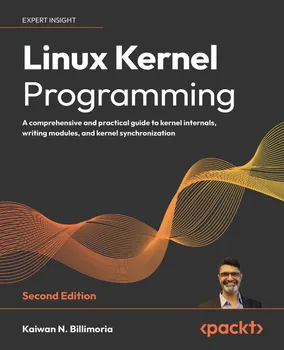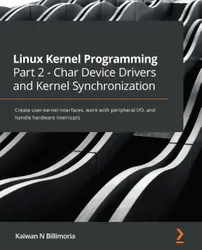The 2nd Edition of Linux Kernel Programming is an updated, comprehensive guide for new programmers to the Linux kernel. This book uses the recent 6.1 Long-Term Support (LTS) Linux kernel series, which will be maintained until Dec 2026, and also delves into its many new features. Further, the Civil Infrastructure Project has pledged to maintain and support this 6.1 Super LTS (SLTS) kernel right until August 2033, keeping this book valid for years to come!
You’ll begin this exciting journey by learning how to build the kernel from source. In a step by step manner, you will then learn how to write your first kernel module by leveraging the kernel’s powerful Loadable Kernel Module (LKM) framework. With this foundation, you will delve into key kernel internals topics including Linux kernel architecture, memory management, and CPU (task) scheduling. You’ll finish with understanding the deep issues of concurrency, and gain insight into how they can be addressed with various synchronization/locking technologies (e.g., mutexes, spinlocks, atomic/refcount operators, rw-spinlocks and even lock-free technologies such as per-CPU and RCU).
By the end of this book, you’ll have a much better understanding of the fundamentals of writing the Linux kernel and kernel module code that can straight away be used in real-world projects and products.



